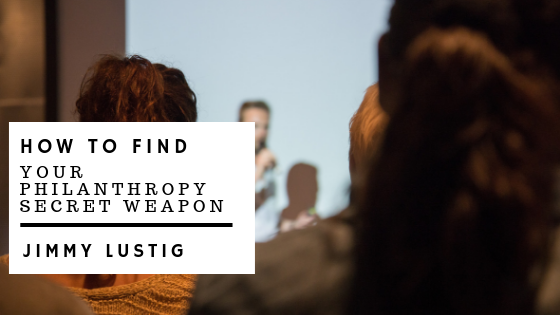The point of being involved with philanthropy is the hope to make long-term changes in an area of need. To be able to achieve this, philanthropists need to create a space where they can pause their routine, take a step back and look at the bigger picture. Taking a step back allows you to reflect and think on how you can improve your philanthropy. What this “secret weapon” looks like varies from philanthropist, but here are three places to start to find yours.
What do you read?
There is a plethora of information available out there that can help inform your work. In fact, there’s almost too much information. Don’t let information overload get to you. Instead of subscribing to every newsletter about philanthropy leadership or the specific cause you’re interested in, choose a select few and set aside time each week to really go through them. Take in the information they have to offer instead of just skimming over it. Another way to approach this is to think if what specific issues you’re currently dealing with in your organization and seek out information to help solve those issues. If you’re trying to address a foundation-wide issue, then have your staff set aside time during their work day to read the selected materials as well. Don’t expect them to use their personal time to do so.
Where can you build camaraderie?
In the effort to get everything done that you need to, you may not prioritize attending conferences and speaking with others working towards the same mission as you. It’s easy to push them aside to accomplish more pressing tasks. However, getting outside of your office and meeting up with others face-to-face is necessary and will help you find a new perspective when addressing your issues with philanthropy. It enables you to learn what your peers do to manage the same challenges you face and can help you build a support system. Even if you serve in different roles, you’ll be able to make connections with the people you meet at these events that will help open your eyes to your organization.
Whom do you confide in?
Having someone you can discuss difficult decisions with is necessary, especially in the world of philanthropy. Having someone who is an expert in the field can you give you an objective, third-party view and help you to make sure you’re doing the right thing. Finding an adviser that you trust will help you to get out of your own head. There will always be certain issues that you’re not able to talk about with other board members or staff, so having someone to turn to will help save you from experiencing frustration and burnout. This adviser may be a professional or life coach that you hire, or it may be a connection you’ve made by attending conferences. As long as it is someone dedicated to helping you and removed from your organization, they can be a valuable source.
